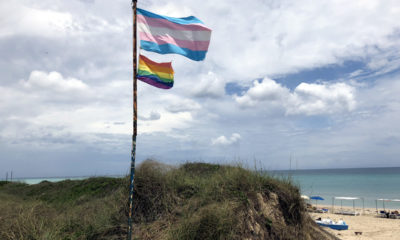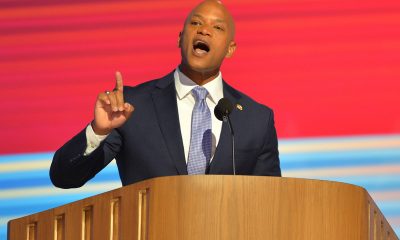National
EEOC ruling on trans rights triggers new call for ENDA
Agency decision doesn’t affect gay, lesbian workers
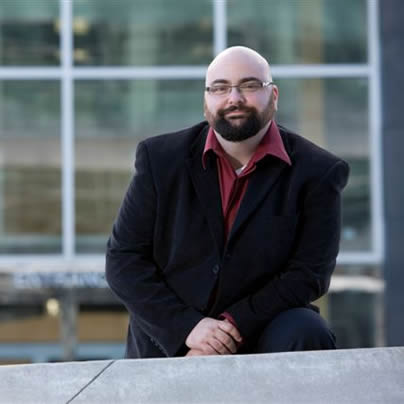
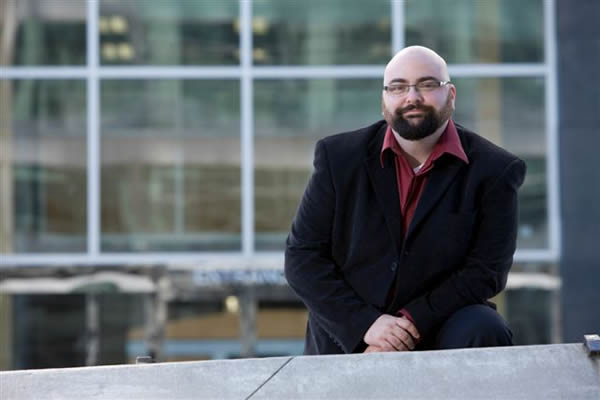
Masen Davis, executive director of the Transgender Law Center (photo courtesy of the Transgender Law Center)
LGBT rights supporters are continuing to press for passage of the Employment Non-Discrimination Act, following a ruling this week from a U.S. agency expanding non-discrimination protections under existing law to include transgender workers.
During a conference call with reporters on Tuesday, Masen Davis, executive director of the Transgender Law Center, emphasized the need for passage of ENDA, legislation that would bar employers from discriminating on the basis of sexual orientation and gender identity.
Davis said ENDA would complement the ruling Monday from the U.S. Equal Employment Opportunity Commission that determined Title VII of the Civil Rights Acts of 1964 covers gender identity.
“We still need ENDA,” Davis said. “This decision is incredibly important. It means that transgender people throughout the United States now have legal recourse … We need to make sure that we couple that with legal protections from Congress and the courts.”
Tobias Wolff, a gay law professor at the University of Pennsylvania, said the ruling doesn’t provide non-discrimination protections for gay and lesbian workers — coverage that ENDA would provide. Additionally, Wolff said transgender workers could face discrimination based on sexual orientation if they’re in a same-sex relationship that an employer finds objectionable.
“If you’re a transgender lesbian, for example, then the question of whether you’re protected from discrimination based upon your gender identity is often put on the table at the same time the question of whether you’re protected from discrimination because you’re a lesbian,” Wolff said. “This ruling speaks to the first question; it doesn’t speak to the second question.”
LGBT organizations such as the Human Rights Campaign and the National Gay & Lesbian Task Force issued statements calling for the passage of ENDA after the EEOC decision was rendered.
HRC President Joe Solmonese said “it is critical” the entire LGBT community have “clear, strong protections against workplace discrimination in federal law.”
“Policymakers must take every step available to them to ensure all workers have a level playing field, including passage of an inclusive Employment Non-Discrimination Act and the adoption of an executive order barring discrimination by federal contractors,” Solmonese said.
EEOC made the ruling after the Obama administration was criticized by many in the LGBT community for deciding at this time against issuing an executive order requiring federal contractors to have non-discrimination policies based on sexual orientation and gender identity. But the advocates say they believe the two decisions are unrelated.
Davis said he “doesn’t see any connection” between the White House decision not to issue the executive order and the EEOC ruling affirming transgender workers’ rights.
“This case has been in process for over a year now,” Davis said. “This has been with EEOC for several months. The EEOC is an independent agency and the decision was made by the five appointed commissioners.”
That observation was verified by the White House. Shin Inouye, a White House spokesperson, said the EEOC “reached their conclusion on their own.”
Davis said the decision is almost certain to stand because it cannot be appealed to a higher court or anywhere else because the federal Bureau of Alcohol, Tobacco, Firearms and Explosives would have to show the decision was “clearly erroneous.”
“This is the final word,” Davis said. “ATF could ask for reconsideration by the commission, but it’s very unlikely they would even ask for it … The agency would have to show that the decision was clearly erroneous in its interpretation of the law, which was plainly not the case [given] the EEOC issued the decision in light of the strong trans federal court decisions.”
However, Wolff noted that the Supreme Court could get involved in the issue if lower federal courts make their own decisions on whether Title VII should apply to transgender workers.
“I think it’s a little premature to say that this is a settled issue among the lower federal courts,” Wolff said. “I think it is correct to say that the trend among lower courts is … recognizing anti-trans discrimination is sex discrimination and that that is certainly the better argument. The question of whether or not the court gets involved will probably depend what types of opinions we see coming out of lower federal courts.”
The ruling will allow for the hiring of Mia Macy, a transgender woman who allegedly was denied a job as a ballistics technician at the ATF.
“That’s all she’s ever wanted,” Davis said. “She wants the ability use her skills and her talents and her tremendous experience … to serve as a member of ATF.”
Ilona Turner, legal director for the Transgender Law Center, said her organization would also seek the restitution of back pay, which could be resolved through settlement or the agency issuing a response to the discrimination complaint and ordering the appropriate remedy.
“As she mentioned, she lost her house as a result of this,” Turner said. “Her family has been seriously affected financially by what she went through.”
Wolff also spoke favorably about the presence on the EEOC of Chai Feldblum, a lesbian who’s had a long history of LGBT activism — authoring ENDA and fighting against the institution of “Don’t Ask, Don’t Tell” in 1993.
“She is one of the most distinguished and brilliant minds of our generation on discrimination law and statutes that are aimed at prohibiting discrimination,” Wolff said. “I think that one can see her expertise certainly, among others, reflected in the analysis of this opinion. When the president selected her for this post, I think it represented a strong statement on the part of his administration about the importance of good and sensible thinking on anti-discrimination law enforced in the statutes like Title VII. It is because we have such good people on the EEOC that we see a ruling like this.”
CORRECTION: An initial posting of this article misattributed a quote about Chai Feldblum. The Blade regrets the error.
New York
Men convicted of murdering two men in NYC gay bar drugging scheme sentenced
One of the victims, John Umberger, was D.C. political consultant

A New York judge on Wednesday sentenced three men convicted of killing a D.C. political consultant and another man who they targeted at gay bars in Manhattan.
NBC New York notes a jury in February convicted Jayqwan Hamilton, Jacob Barroso, and Robert DeMaio of murder, robbery, and conspiracy in relation to druggings and robberies that targeted gay bars in Manhattan from March 2021 to June 2022.
John Umberger, a 33-year-old political consultant from D.C., and Julio Ramirez, a 25-year-old social worker, died. Prosecutors said Hamilton, Barroso, and DeMaio targeted three other men at gay bars.
The jury convicted Hamilton and DeMaio of murdering Umberger. State Supreme Court Judge Felicia Mennin sentenced Hamilton and DeMaio to 40 years to life in prison.
Barroso, who was convicted of killing Ramirez, received a 20 years to life sentence.
National
Medical groups file lawsuit over Trump deletion of health information
Crucial datasets included LGBTQ, HIV resources
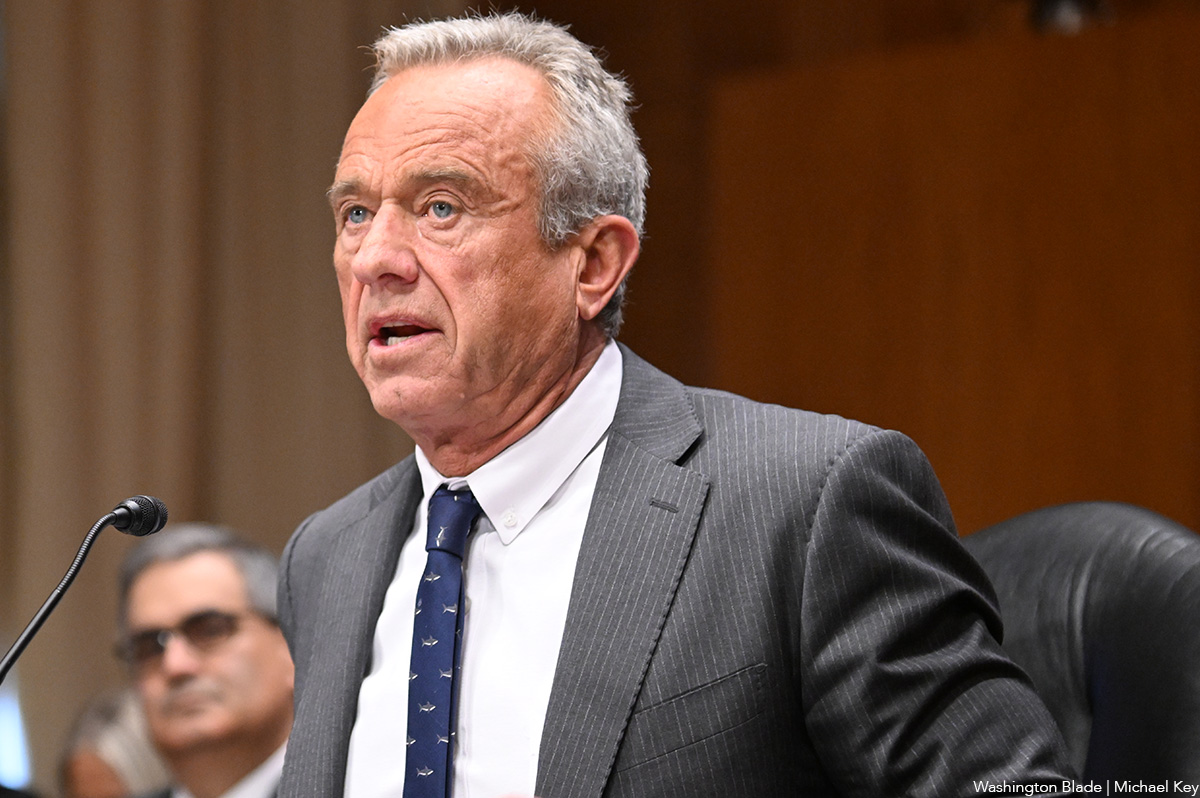
Nine private medical and public health advocacy organizations, including two from D.C., filed a lawsuit on May 20 in federal court in Seattle challenging what it calls the U.S. Department of Health and Human Services’s illegal deletion of dozens or more of its webpages containing health related information, including HIV information.
The lawsuit, filed in the United States District Court for the Western District of Washington, names as defendants Robert F. Kennedy Jr., secretary of the Department of Health and Human Services (HHS) and HHS itself, and several agencies operating under HHS and its directors, including the Centers for Disease Control and Prevention, the National Institutes of Health, and the Food and Drug Administration.
“This action challenges the widespread deletion of public health resources from federal agencies,” the lawsuit states. “Dozens (if not more) of taxpayer-funded webpages, databases, and other crucial resources have vanished since January 20, 2025, leaving doctors, nurses, researchers, and the public scrambling for information,” it says.
“These actions have undermined the longstanding, congressionally mandated regime; irreparably harmed Plaintiffs and others who rely on these federal resources; and put the nation’s public health infrastructure in unnecessary jeopardy,” the lawsuit continues.
It adds, “The removal of public health resources was apparently prompted by two recent executive orders – one focused on ‘gender ideology’ and the other targeting diversity, equity, and inclusion (‘DEI’) programs. Defendants implemented these executive orders in a haphazard manner that resulted in the deletion (inadvertent or otherwise) of health-related websites and databases, including information related to pregnancy risks, public health datasets, information about opioid-use disorder, and many other valuable resources.”
The lawsuit does not mention that it was President Donald Trump who issued the two executive orders in question.
A White House spokesperson couldn’t immediately be reached for comment on the lawsuit.
While not mentioning Trump by name, the lawsuit names as defendants in addition to HHS Secretary Robert Kennedy Jr., Matthew Buzzelli, acting director of the Centers for Disease Control and Prevention; Jay Bhattacharya, director of the National Institutes of Health; Martin Makary, commissioner of the Food and Drug Administration; Thomas Engels, administrator of the Health Resources and Services Administration; and Charles Ezell, acting director of the Office of Personnel Management.
The 44-page lawsuit complaint includes an addendum with a chart showing the titles or descriptions of 49 “affected resource” website pages that it says were deleted because of the executive orders. The chart shows that just four of the sites were restored after initially being deleted.
Of the 49 sites, 15 addressed LGBTQ-related health issues and six others addressed HIV issues, according to the chart.
“The unannounced and unprecedented deletion of these federal webpages and datasets came as a shock to the medical and scientific communities, which had come to rely on them to monitor and respond to disease outbreaks, assist physicians and other clinicians in daily care, and inform the public about a wide range of healthcare issues,” the lawsuit states.
“Health professionals, nonprofit organizations, and state and local authorities used the websites and datasets daily in care for their patients, to provide resources to their communities, and promote public health,” it says.
Jose Zuniga, president and CEO of the International Association of Providers of AIDS Care (IAPAC), one of the organizations that signed on as a plaintiff in the lawsuit, said in a statement that the deleted information from the HHS websites “includes essential information about LGBTQ+ health, gender and reproductive rights, clinical trial data, Mpox and other vaccine guidance and HIV prevention resources.”
Zuniga added, “IAPAC champions evidence-based, data-informed HIV responses and we reject ideologically driven efforts that undermine public health and erase marginalized communities.”
Lisa Amore, a spokesperson for Whitman-Walker Health, D.C.’s largest LGBTQ supportive health services provider, also expressed concern about the potential impact of the HHS website deletions.
“As the region’s leader in HIV care and prevention, Whitman-Walker Health relies on scientific data to help us drive our resources and measure our successes,” Amore said in response to a request for comment from the Washington Blade.
“The District of Columbia has made great strides in the fight against HIV,” Amore said. “But the removal of public facing information from the HHS website makes our collective work much harder and will set HIV care and prevention backward,” she said.
The lawsuit calls on the court to issue a declaratory judgement that the “deletion of public health webpages and resources is unlawful and invalid” and to issue a preliminary or permanent injunction ordering government officials named as defendants in the lawsuit “to restore the public health webpages and resources that have been deleted and to maintain their web domains in accordance with their statutory duties.”
It also calls on the court to require defendant government officials to “file a status report with the Court within twenty-four hours of entry of a preliminary injunction, and at regular intervals, thereafter, confirming compliance with these orders.”
The health organizations that joined the lawsuit as plaintiffs include the Washington State Medical Association, Washington State Nurses Association, Washington Chapter of the American Academy of Pediatrics, Academy Health, Association of Nurses in AIDS Care, Fast-Track Cities Institute, International Association of Providers of AIDS Care, National LGBT Cancer Network, and Vermont Medical Society.
The Fast-Track Cities Institute and International Association of Providers of AIDS Care are based in D.C.
U.S. Federal Courts
Federal judge scraps trans-inclusive workplace discrimination protections
Ruling appears to contradict US Supreme Court precedent
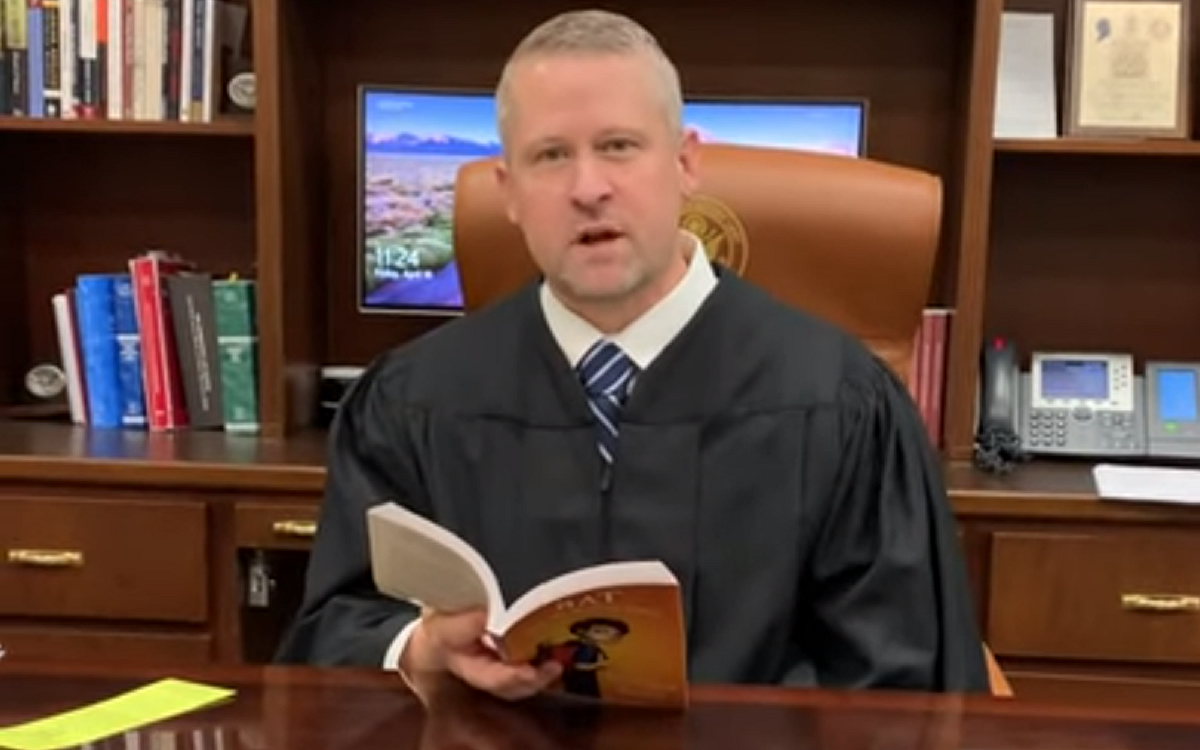
Judge Matthew Kacsmaryk of the U.S. District Court for the Northern District of Texas has struck down guidelines by the U.S. Equal Employment Opportunity Commission designed to protect against workplace harassment based on gender identity and sexual orientation.
The EEOC in April 2024 updated its guidelines to comply with the U.S. Supreme Court’s ruling in Bostock v. Clayton County (2020), which determined that discrimination against transgender people constituted sex-based discrimination as proscribed under Title VII of the Civil Rights Act of 1964.
To ensure compliance with the law, the agency recommended that employers honor their employees’ preferred pronouns while granting them access to bathrooms and allowing them to wear dress code-compliant clothing that aligns with their gender identities.
While the the guidelines are not legally binding, Kacsmaryk ruled that their issuance created “mandatory standards” exceeding the EEOC’s statutory authority that were “inconsistent with the text, history, and tradition of Title VII and recent Supreme Court precedent.”
“Title VII does not require employers or courts to blind themselves to the biological differences between men and women,” he wrote in the opinion.
The case, which was brought by the conservative think tank behind Project 2025, the Heritage Foundation, presents the greatest setback for LGBTQ inclusive workplace protections since President Donald Trump’s issuance of an executive order on the first day of his second term directing U.S. federal agencies to recognize only two genders as determined by birth sex.
Last month, top Democrats from both chambers of Congress reintroduced the Equality Act, which would codify LGBTQ-inclusive protections against discrimination into federal law, covering employment as well as areas like housing and jury service.





